
Nadi: The Gateway to Fiji's Tropical Paradise
Nadi, located on the western side of Viti Levu, is Fiji's third-largest city and serves as the primary entry point for international visitors. This vibrant city is known for its friendly locals, rich culture, and stunning natural landscapes. From the moment you arrive, you will feel the warm embrace of Fijian hospitality. One of the top attractions in Nadi is the Sri Siva Subramaniya Temple, the largest Hindu temple in the Southern Hemisphere. This colorful and intricate temple is a must-visit for its beautiful architecture and peaceful atmosphere. Nearby, you will find the bustling Nadi Market, where you can sample fresh produce and handmade crafts, offering a glimpse into everyday Fijian life. For nature enthusiasts, the Garden of the Sleeping Giant is a short drive from Nadi. This lush garden was founded by the late actor Raymond Burr and is home to over 2,000 varieties of orchids and other tropical plants. Another natural wonder is the Sabeto Hot Springs and Mud Pool, where you can enjoy a therapeutic soak in the mineral-rich waters. If you are looking for a beach experience, head to Wailoaloa Beach, a popular spot for both locals and tourists. Nadi is also the gateway to the stunning Mamanuca and Yasawa Islands, which are perfect for day trips and extended stays. These islands offer pristine beaches, crystal-clear waters, and fantastic opportunities for snorkeling, diving, and other water sports. With its blend of cultural attractions, natural beauty, and easy access to other parts of Fiji, Nadi is an essential stop on any Fijian adventure.
Local tips in Nadi
- Visit the Sri Siva Subramaniya Temple early in the morning to avoid the crowds and heat.
- Bring cash to Nadi Market as many vendors do not accept credit cards.
- Wear comfortable walking shoes when visiting the Garden of the Sleeping Giant.
- Bring a towel and a change of clothes for the Sabeto Hot Springs and Mud Pool.
- Book island tours in advance, especially during peak travel seasons.
Nadi: The Gateway to Fiji's Tropical Paradise
Nadi, located on the western side of Viti Levu, is Fiji's third-largest city and serves as the primary entry point for international visitors. This vibrant city is known for its friendly locals, rich culture, and stunning natural landscapes. From the moment you arrive, you will feel the warm embrace of Fijian hospitality. One of the top attractions in Nadi is the Sri Siva Subramaniya Temple, the largest Hindu temple in the Southern Hemisphere. This colorful and intricate temple is a must-visit for its beautiful architecture and peaceful atmosphere. Nearby, you will find the bustling Nadi Market, where you can sample fresh produce and handmade crafts, offering a glimpse into everyday Fijian life. For nature enthusiasts, the Garden of the Sleeping Giant is a short drive from Nadi. This lush garden was founded by the late actor Raymond Burr and is home to over 2,000 varieties of orchids and other tropical plants. Another natural wonder is the Sabeto Hot Springs and Mud Pool, where you can enjoy a therapeutic soak in the mineral-rich waters. If you are looking for a beach experience, head to Wailoaloa Beach, a popular spot for both locals and tourists. Nadi is also the gateway to the stunning Mamanuca and Yasawa Islands, which are perfect for day trips and extended stays. These islands offer pristine beaches, crystal-clear waters, and fantastic opportunities for snorkeling, diving, and other water sports. With its blend of cultural attractions, natural beauty, and easy access to other parts of Fiji, Nadi is an essential stop on any Fijian adventure.
When is the best time to go to Nadi?
Iconic landmarks you can’t miss
Nadi Market
Explore the vibrant Nadi Market, where fresh produce, local crafts, and authentic Fijian flavors come together in a colorful cultural experience.
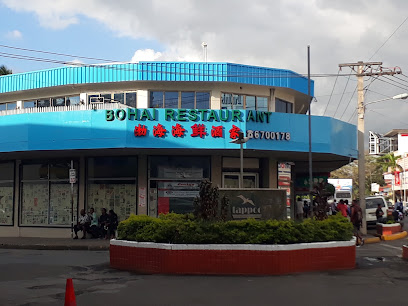
Sri Siva Subramaniya Swami Temple
Explore the breathtaking Sri Siva Subramaniya Swami Temple in Nadi, Fiji, a cultural gem featuring intricate architecture and a vibrant spiritual ambiance.

Churchill Park
Discover the vibrant atmosphere of Churchill Park, a multi-purpose stadium and park in Lautoka, perfect for sports, relaxation, and cultural events.
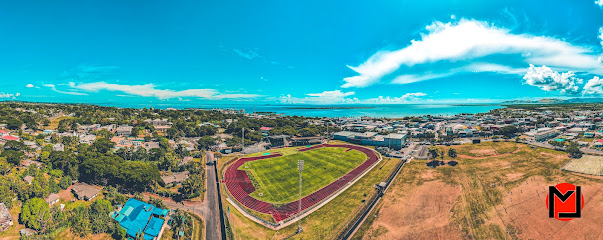
Fiji Gateway
Experience the best of Fiji at Fiji Gateway, your essential stop for relaxation and adventure in Nadi's heart.

Smugglers Cove Beach Resort
Discover the ultimate tropical escape at Smugglers Cove Beach Resort, where relaxation meets adventure in beautiful Nadi, Fiji.

Garden of the Sleeping Giant
Explore the Garden of the Sleeping Giant in Fiji, a stunning botanical garden showcasing over 2,000 orchid species amidst serene tropical landscapes.
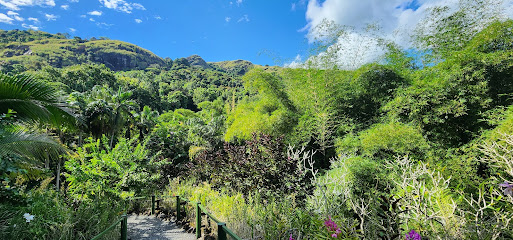
Kula WILD Adventure Park
Experience the excitement of Kula WILD Adventure Park, where adventure meets the beauty of Fiji's nature and wildlife.
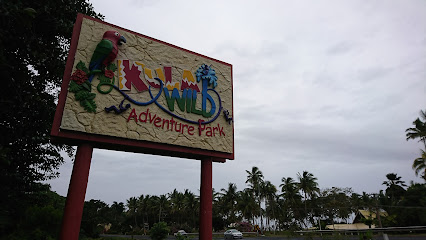
Bulaccino Café (Namaka, Nadi)
Explore the vibrant flavors of Fiji at Bulaccino Café in Nadi, offering delightful dishes, vegan options, and a cozy atmosphere for every traveler.
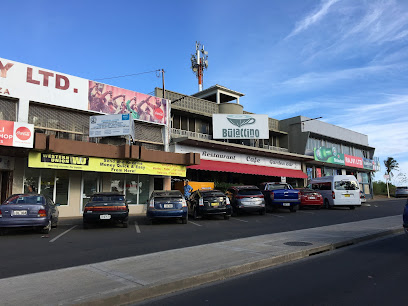
Mercure Nadi
Discover comfort and convenience at Mercure Nadi, your gateway to exploring the beauty and culture of Fiji, just minutes from the airport.

Sigatoka Sand Dunes National Park - Visitor Information Center
Discover the breathtaking landscapes and rich heritage of Sigatoka Sand Dunes National Park, an ecological jewel in Fiji's natural beauty.
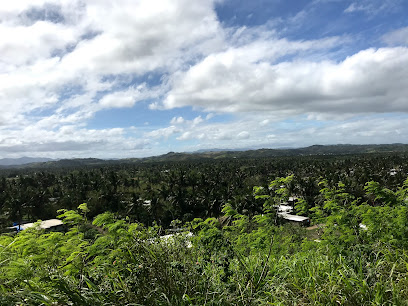
Sabeto Hot Spring Mud Pool and Tours
Discover the rejuvenating powers of nature at Sabeto Hot Spring Mud Pool, where relaxation meets adventure amidst Fiji's lush landscape.
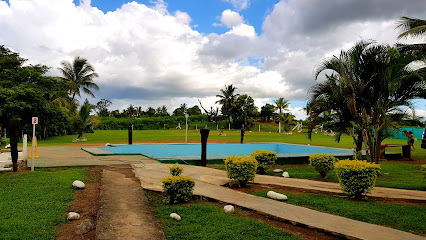
Ratsun Nadi Airport Apartment Hotel
Stay close to Nadi Airport and enjoy comfort and convenience at Ratsun Nadi Airport Apartment Hotel - your perfect home base in Fiji.

Corner Cafe Fiji
Discover the vibrant flavors of Fiji at Corner Cafe, where culinary delights meet local hospitality in the heart of Nadi.
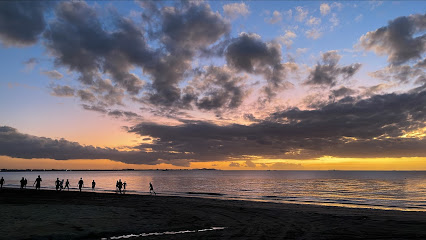
Koroyanitu National Park
Explore the lush landscapes and rich biodiversity of Koroyanitu National Park, a serene escape in the heart of Fiji's natural beauty.
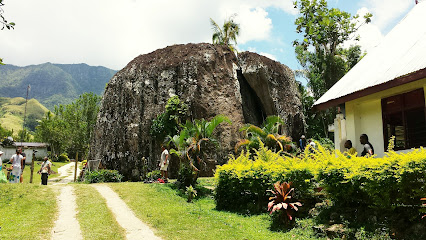
Aquarius On The Beach
Experience the tranquility and charm of Aquarius On The Beach, your perfect getaway in Nadi, Fiji, with stunning ocean views and warm hospitality.
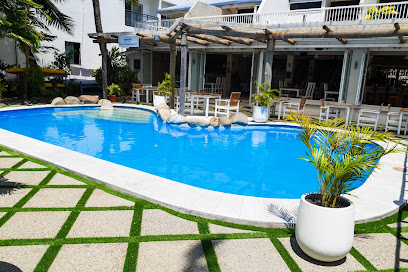
Unmissable attractions to see
Port Denarau Marina
Your launchpad for unforgettable Fijian island adventures, offering seamless access to paradise with dining, shopping, and cultural experiences.
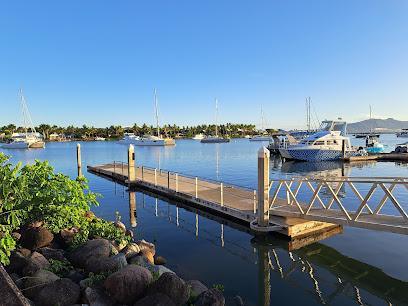
Malamala Beach Club
Experience the world's first island beach club, just a short boat ride from Denarau, offering white sands, turquoise waters, and island vibes.
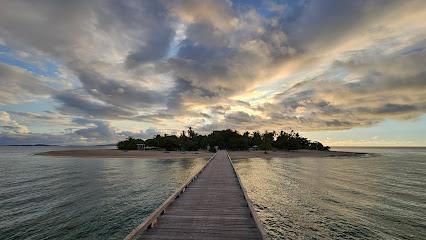
Sri Siva Subramaniya Swami Temple
Explore the largest Hindu temple in the Southern Hemisphere, a vibrant masterpiece of Dravidian architecture in the heart of Nadi, Fiji.
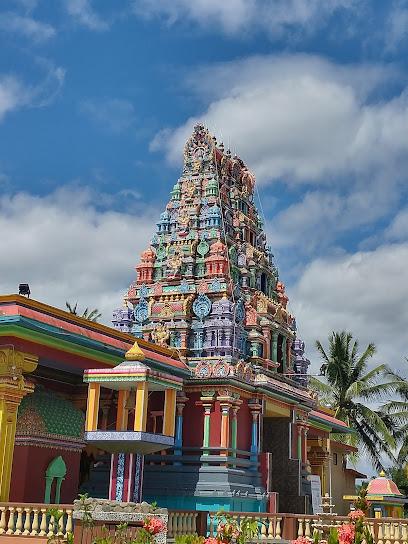
Garden of the Sleeping Giant
Discover a tranquil paradise at the Garden of the Sleeping Giant, home to thousands of orchids and lush rainforest trails in beautiful Fiji.
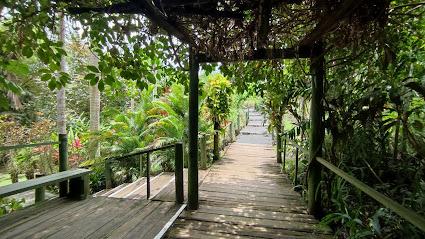
South Sea Cruises
Your gateway to Fiji's stunning Mamanuca and Yasawa Islands, offering seamless ferry transfers and unforgettable day trips.
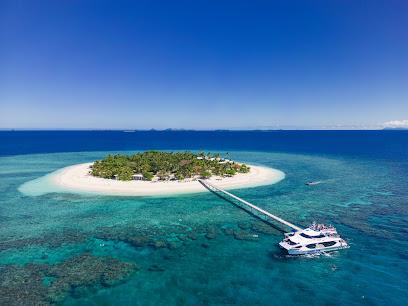
Kula WILD Adventure Park
Discover Fiji's unique wildlife and natural beauty at Kula WILD Adventure Park, an unforgettable adventure for the whole family.
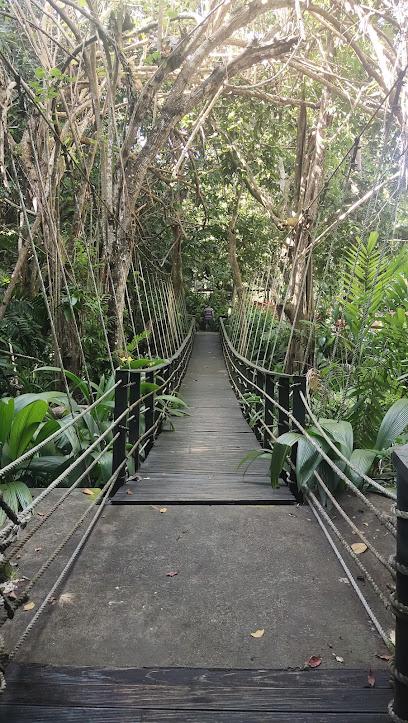
Vuda Marina
Discover Fiji's maritime heart at Vuda Marina: A vibrant hub for yachts, water sports, and cultural experiences in the beautiful South Pacific.
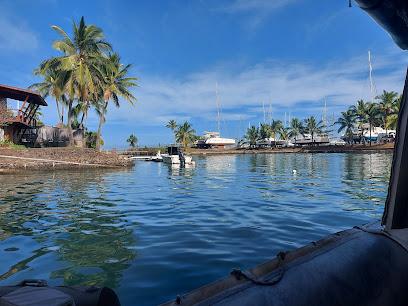
Big Bula Waterpark
Experience Fiji's ultimate water adventure with thrilling slides, inflatable fun, and family-friendly zones at Big Bula Waterpark!
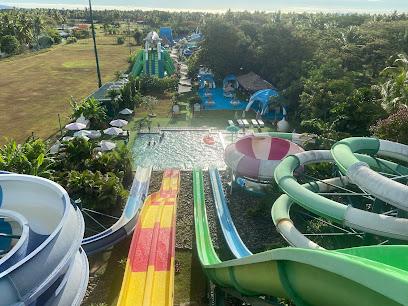
Cloud 9 Fiji
Experience paradise at Cloud 9 Fiji: a unique floating bar and pizzeria in the Mamanuca Islands with music, water activities, and stunning ocean views.
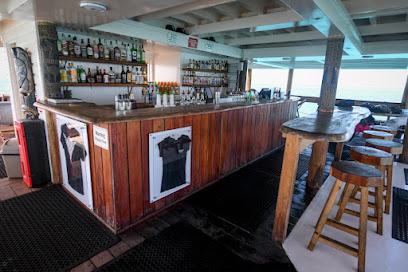
Sabeto Hot Spring Mud Pool and Tours
Rejuvenate in Fiji's natural mud and hot springs at Sabeto, a unique and therapeutic spa experience near Nadi.
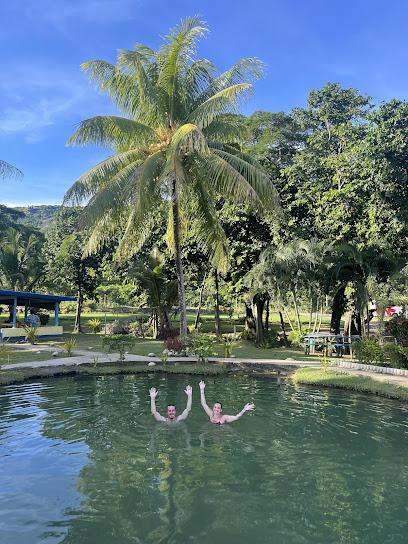
Sigatoka Sand Dunes National Park - Visitor Information Center
Discover Fiji's unique Sigatoka Sand Dunes National Park: Hike through stunning landscapes and uncover ancient history on the Coral Coast.
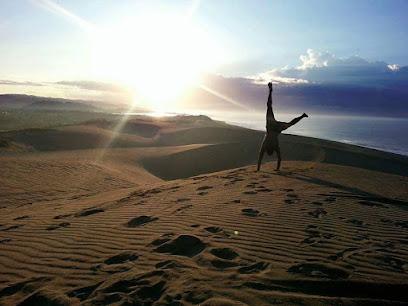
Castaway Island, Fiji
Experience barefoot luxury on a pristine Fijian island with white-sand beaches, vibrant coral reefs, and authentic cultural experiences.
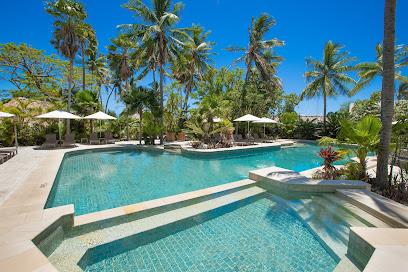
Robinson Crusoe Island Tours
Experience Fijian culture and adventure on Likuri Island with Robinson Crusoe Island Tours. Enjoy fire shows, water activities, and island relaxation.
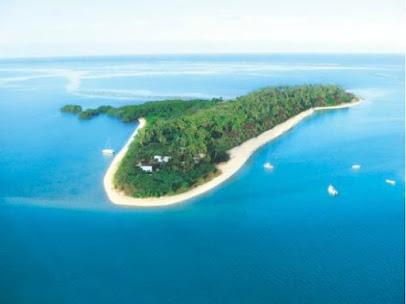
Koroyanitu National Park
Discover Fiji's hidden gem: Hike through lush rainforests, experience Fijian culture, and witness breathtaking views at Koroyanitu National Park.
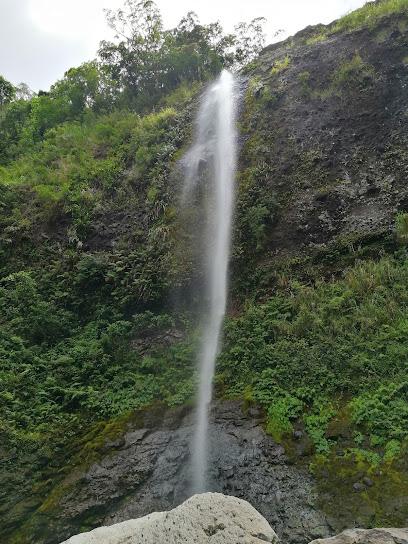
Captain Cook Cruises Fiji
Embark on unforgettable Fiji island cruises and day trips from Port Denarau, exploring pristine reefs and vibrant culture.
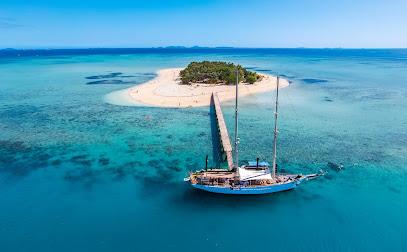
Essential places to dine
Bulaccino Café (Namaka, Nadi)
Discover Bulaccino Café in Namaka, Nadi - where Fijian flavors meet international cuisine in a cozy setting.
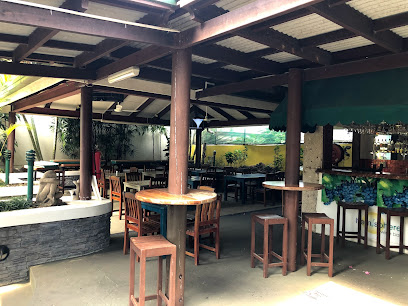
Bohai Seafood Restaurant
Experience exquisite seafood dining at Bohai Seafood Restaurant in Nadi - where freshness meets Fijian hospitality.
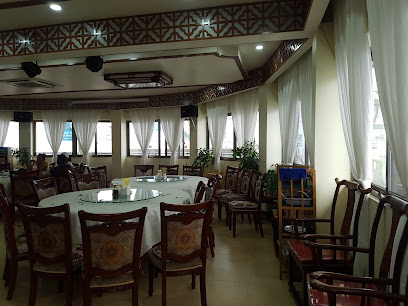
Sentai Seafood Restaurant
Experience the freshest seafood and authentic Asian flavors at Sentai Seafood Restaurant in Nadi - a true taste of Fiji's culinary heritage.
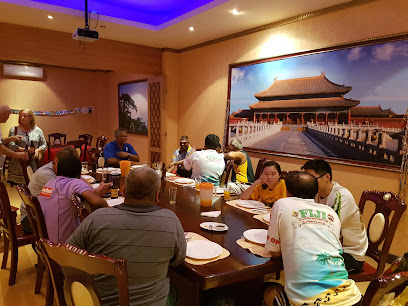
Sitar Indian & Thai Restaurant, Nadi
Discover exquisite Indian and Thai flavors at Sitar Indian & Thai Restaurant in Nadi - where culinary excellence meets tropical charm.
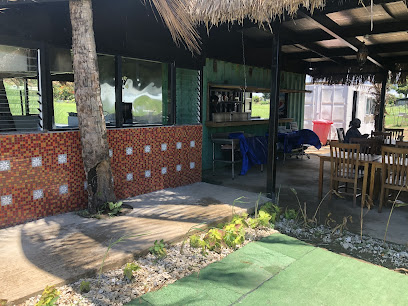
Corner Cafe Fiji
Discover the flavors of Fiji at Corner Cafe – your go-to spot for breakfast, vegan delights, and sweet treats in Nadi.
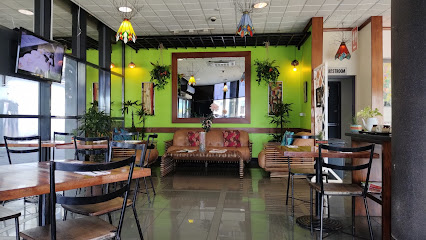
Daikoku 大黑
Savor authentic Japanese flavors at Daikoku 大黑 in Nadi – where culinary excellence meets cultural charm.
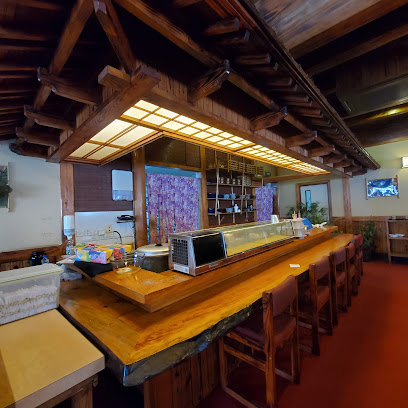
Mama's Pizza
Experience authentic Fijian hospitality at Mama's Pizza in Nadi - where every slice tells a story.
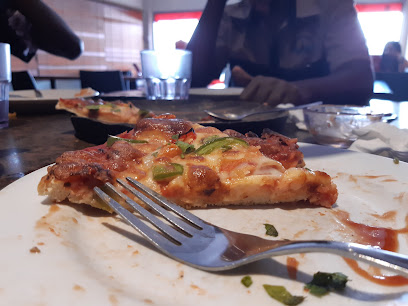
LC's Restaurant
Experience authentic Chinese cuisine at LC's Restaurant in Nadi - where every dish tells a story of flavor.
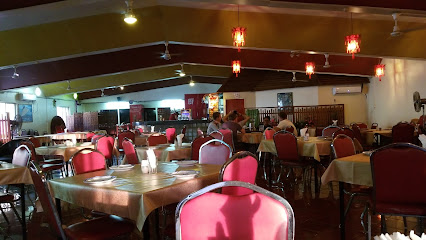
Vasaqa Fiji
Experience authentic Fijian cuisine and vibrant nightlife at Vasaqa Fiji – your gateway to local flavors in Nadi.
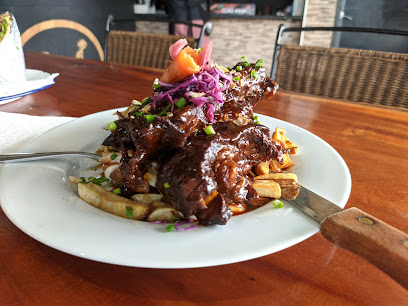
Tata's Curry House ( The Taste Of Paradise)
Discover authentic South Indian flavors at Tata's Curry House in Nadi - where every dish tells a story.
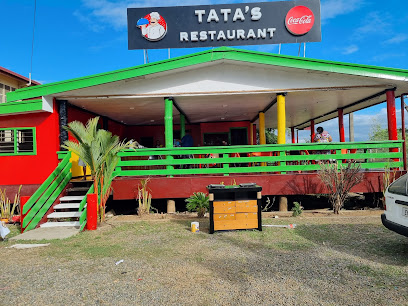
Masala Twist Restaurant
Experience the rich flavors of India at Masala Twist Restaurant in Nadi – a culinary delight for every traveler.
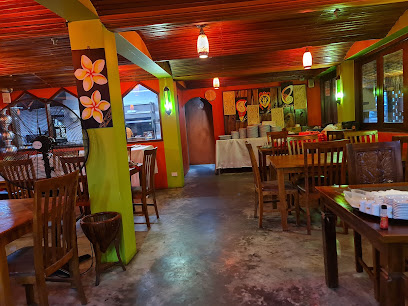
Red Pepper Restaurant & BAR
Discover authentic Punjabi flavors at Red Pepper Restaurant & BAR in Nadi - A culinary haven for food lovers.
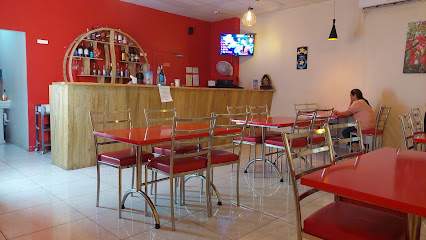
Beach Escape Resort Restaurant
Experience exquisite dining with ocean views at Beach Escape Resort Restaurant in Nadi - where every meal is a celebration of flavors.
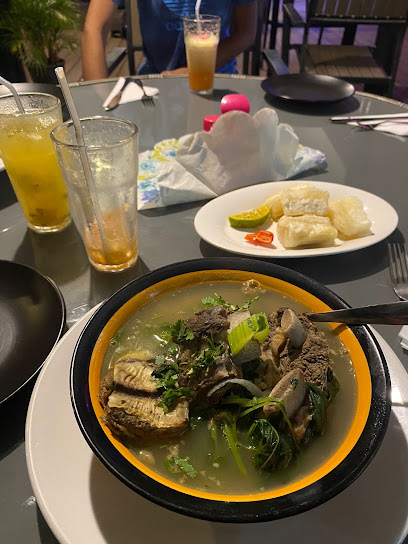
Indiana Tandoori Restuarent & Bar Main street Namaka Nadi
Experience authentic Indian flavors at Indiana Tandoori Restaurant & Bar in Namaka, Nadi - where vibrant cuisine meets warm hospitality.
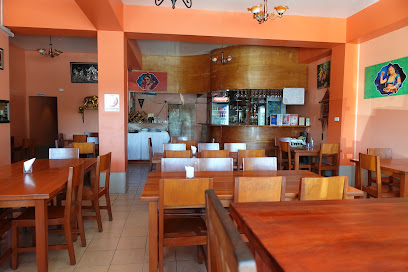
Olive Tree Wailoaloa
Discover authentic Mexican cuisine at Olive Tree Wailoaloa in Nadi, Fiji—where vibrant flavors meet tropical charm.
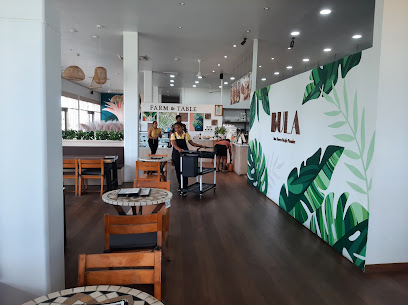
Markets, malls and hidden boutiques
Prouds Downtown Nadi Shopping Complex
Explore the vibrant Prouds Downtown Nadi Shopping Complex for a unique mix of local and international shopping experiences in the heart of Fiji.
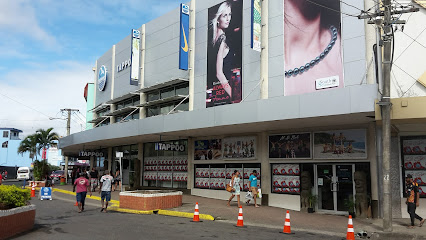
Tappoo Shop
Discover the essence of Fiji at Tappoo Shop, Nadi's premier destination for unique souvenirs, local handicrafts, and vibrant apparel.
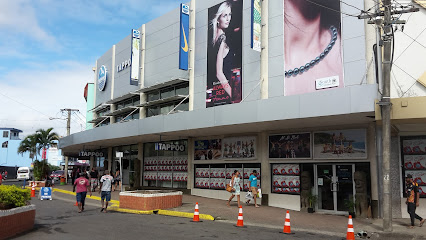
Daily Shop
Experience authentic Indian flavors at Daily Shop, Nadi's go-to grocery and liquor store offering a unique taste of India.
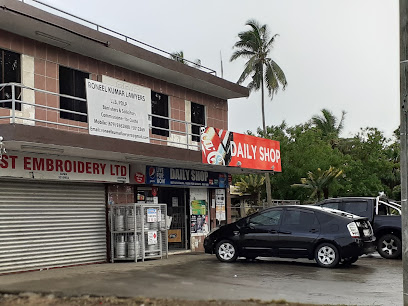
Harrisons Fiji
Discover the vibrant fashion of Fiji at Harrisons Fiji, your go-to clothing store in Nadi for unique styles and tropical inspiration.
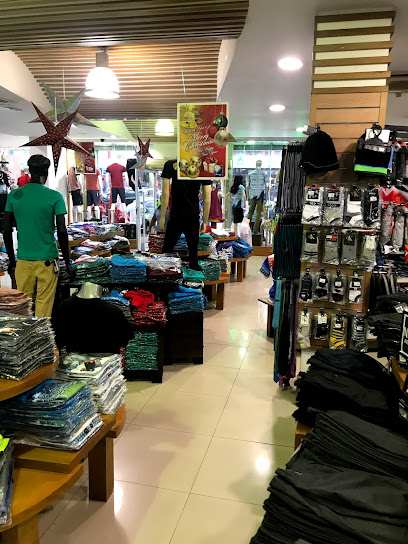
Adidas Nadi, Fiji
Discover the ultimate shopping experience at Adidas Nadi, offering top athletic gear and stylish apparel in the heart of Fiji's vibrant city.

Jack's Nadi
Experience the vibrant culture of Fiji at Jack's Nadi, your premier shopping destination for local crafts and unique souvenirs.
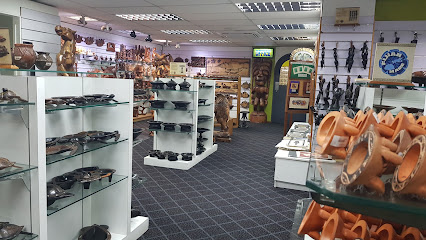
Bargain Box (FIJI) LTD
Explore trendy and affordable clothing at Bargain Box (FIJI) LTD, your go-to shop for fashion in Nadi, Fiji.
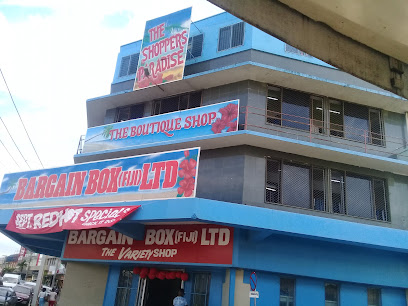
S Nagindas
Discover unique Fijian fashion at S Nagindas in Nadi, where quality meets style in a vibrant shopping experience.
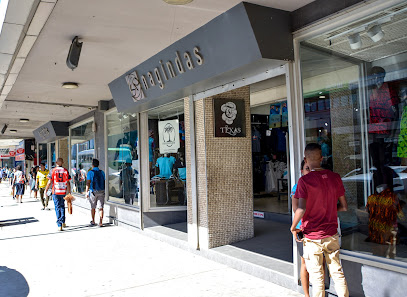
Tropical Fusion Arts
Explore Tropical Fusion Arts in Nadi: A treasure trove of handmade gifts and local crafts reflecting the vibrant Fijian culture.
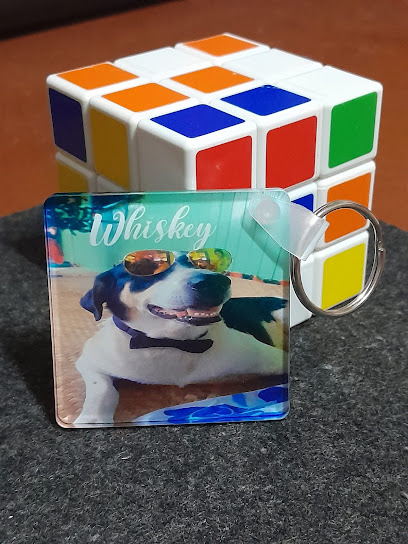
Jack's of Fiji
Discover the best of Fijian culture and international brands at Jack's of Fiji, the ultimate shopping destination in Nadi.
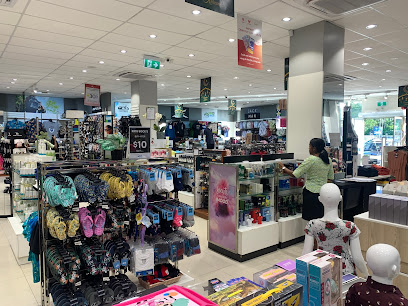
Jacks Little India
Explore Jack's Little India: A vibrant outlet mall in Nadi, showcasing authentic Indian goods and local crafts for an unforgettable shopping experience.

Jacks Discount Store
Explore the vibrant world of Fijian craftsmanship at Jack's Discount Store, your go-to destination for unique gifts, clothing, and local treasures.
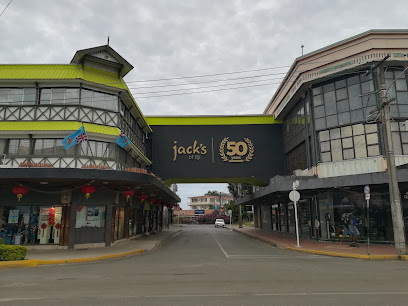
Sheng Hai retail shop
Explore the authentic local products and vibrant souvenirs at Sheng Hai Retail Shop in Nadi, a true reflection of Fijian culture.

Eleganza Fiji
Discover the vibrant world of Fijian fashion at Eleganza Fiji, where local artistry meets contemporary style in Nadi.
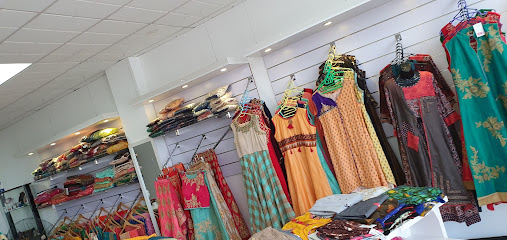
Nike store
Discover the best of athletic gear at the Nike Store in Nadi Airport, a perfect pit-stop for travelers seeking style and performance.

Essential bars & hidden hideouts
Ice Bar
Discover the frosty charm of Ice Bar in Nadi, where unique cocktails meet an unforgettable ice experience amidst a vibrant atmosphere.
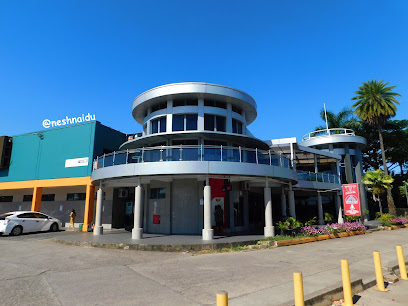
The Beach Club Wailoaloa
Discover the ultimate beach dining experience at The Beach Club Wailoaloa, where fresh local seafood meets stunning ocean views in a vibrant atmosphere.
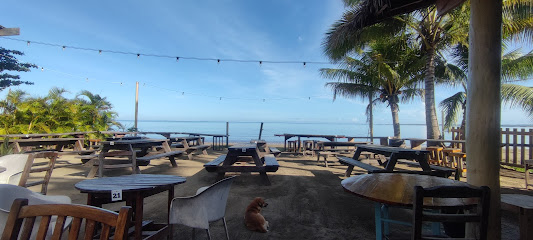
Legends Sports Bar and Restaurant
Discover the lively ambiance of Legends Sports Bar and Restaurant in Nadi, Fiji, where great food meets unforgettable entertainment.
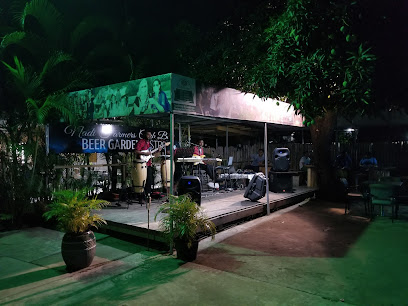
The Hive
Discover the vibrant atmosphere of The Hive, a premier bar in Nadi, Fiji, perfect for unwinding and enjoying refreshing drinks.
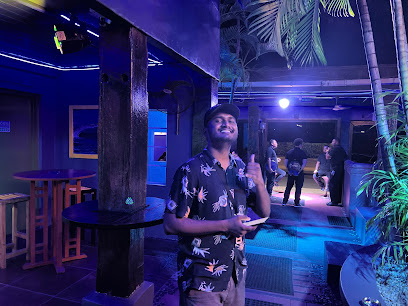
Momos Tavern
Experience the vibrant atmosphere and local flavors at Momos Tavern in Nadi, a perfect pub retreat for tourists seeking relaxation and enjoyment.
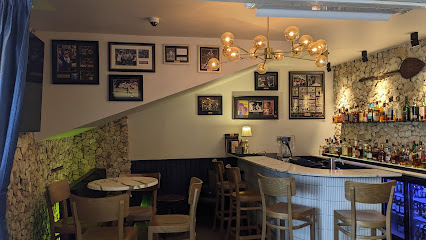
Eds Bar
Experience the vibrant nightlife at Eds Bar in Nadi, Fiji – a perfect blend of music, drinks, and an unforgettable atmosphere.
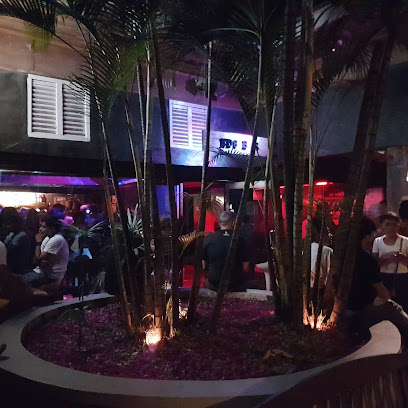
Bates Cafe & Bar
Discover the lively Bates Cafe & Bar in Nadi, where local flavors and a vibrant atmosphere create the ultimate relaxation spot for tourists.
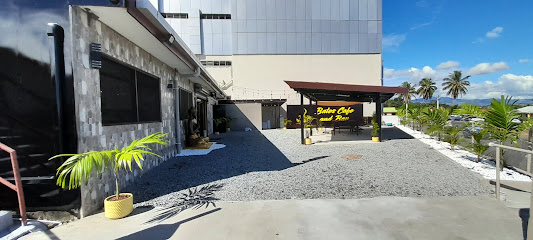
Tiger louge bar
Experience the laid-back Fijian lifestyle at Tiger Lounge Bar, a perfect spot for refreshing drinks and vibrant atmosphere in Nadi.
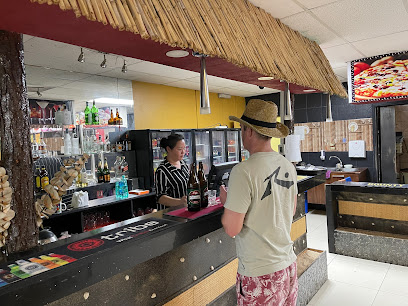
VP’s Kava Bar
Discover the authentic experience of kava drinking at VP’s Kava Bar in Nadi, Fiji - where culture meets relaxation in a friendly atmosphere.
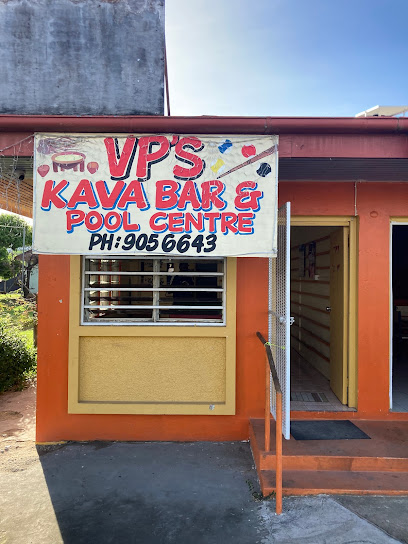
Jojo's Shack
Experience the vibrant atmosphere and refreshing cocktails at Jojo's Shack, your perfect bar destination in Nadi, Fiji.

Satellite Kava And Pool Centre
Experience the vibrant Fijian culture at Satellite Kava and Pool Centre, where relaxation meets tradition in a friendly atmosphere.
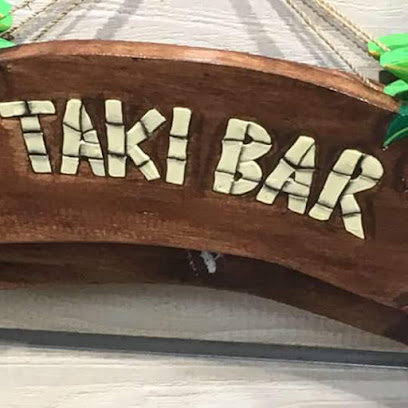
Hidden beach minimart & liquor shop
Discover the charm of Hidden Beach Minimart & Liquor Shop, your go-to bar for drinks and snacks in Nadi, Fiji.
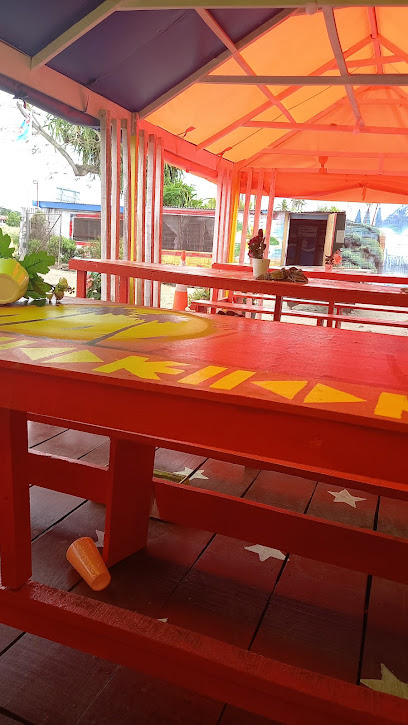
Setlite kava and pool shop
Experience the essence of Fiji at Setlite Kava and Pool Shop, where relaxation meets tradition by the poolside in Namaka, Nadi.

Navadra Kava Bar
Discover the essence of Fijian culture at Navadra Kava Bar, where authentic kava ceremonies create lasting memories in a relaxed atmosphere.
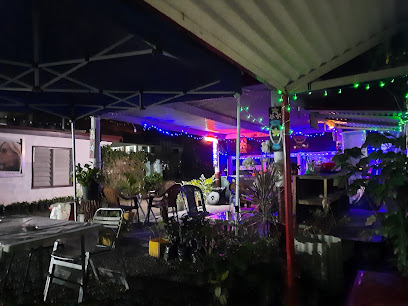
Local Phrases
-
- HelloBula
[boo-lah] - GoodbyeMoce
[moh-they] - YesIo
[ee-oh] - NoSega
[seh-ngah] - Please/You're welcomeVinaka
[vee-nah-kah] - Thank youVinaka vakalevu
[vee-nah-kah vah-kah-ley-voo] - Excuse me/SorryTulou
[too-loh] - How are you?Ni sa yadra?
[nee sah yahn-drah] - Fine. And you?Vinaka. Iko?
[vee-nah-kah. ee-koh?] - Do you speak English?Ko sa vakamacala e na vosa vakaviti?
[koh sah vah-kah-mah-thah-lah eh nah voh-sah vah-kah-vee-tee] - I don't understandAu sega ni kila
[ow seh-ngah nee kee-lah]
- HelloBula
-
- I'd like to see the menu, pleaseAu via raica na menu, vinaka
[ow vee-ah rye-thah nah meh-noo, vee-nah-kah] - I don't eat meatAu sega ni kana lewai
[ow seh-ngah nee kah-nah leh-wah-ee] - Cheers!Bula vinaka!
[boo-lah vee-nah-kah] - I would like to pay, pleaseAu via sauma, vinaka
[ow vee-ah sah-oo-mah, vee-nah-kah]
- I'd like to see the menu, pleaseAu via raica na menu, vinaka
-
- Help!Veivuke!
[vey-voo-kay] - Go away!Lako yani!
[lah-koh yah-nee] - Call the Police!Kaciva na Pulis!
[kah-thee-vah nah poo-lees] - Call a doctor!Kaciva e dua na dokita!
[kah-thee-vah eh doo-ah nah doh-kee-tah] - I'm lostAu sa luvu
[ow sah loo-voo] - I'm illAu sa bibi
[ow sah bee-bee]
- Help!Veivuke!
-
- I'd like to buy...Au via volitaki...
[ow vee-ah voh-lee-tah-kee] - I'm just lookingAu via raica tiko
[ow vee-ah rye-thah tee-koh] - How much is it?E vica na ka levu?
[eh vee-thah nah kah ley-voo] - That's too expensiveSa levu sara
[sah ley-voo sah-rah] - Can you lower the price?Vakabulabula rawa na caka
[vah-kah-boo-lah-boo-lah rah-wah nah thah-kah]
- I'd like to buy...Au via volitaki...
-
- What time is it?E na gauna e vica?
[eh nah gah-oo-nah eh vee-thah] - It's one o'clockE dua na gauna
[eh doo-ah nah gah-oo-nah] - Half past (10)E le dua na gauna (10)
[eh lay doo-ah nah gah-oo-nah (10)] - MorningYabaki
[yah-bah-kee] - AfternoonMataka
[mah-tah-kah] - EveningYalomalumalumu
[yah-loh-mah-loo-mah-loo-moo] - YesterdayNakua
[nah-koo-ah] - TodayNiu siga
[nee-oo see-ngah] - TomorrowMataka
[mah-tah-kah] - 1Dua
[doo-ah] - 2Rua
[roo-ah] - 3Tolu
[toh-loo] - 4Va
[vah] - 5Lima
[lee-mah] - 6Ono
[oh-noh] - 7Vitu
[vee-too] - 8Walu
[wah-loo] - 9Ciwa
[thee-wah] - 10Tini
[tee-nee]
- What time is it?E na gauna e vica?
-
- Where's a/the...?Sa evei na...
[sah eh-vey ney] - What's the address?E evei na ituvatu?
[eh eh-vey nah ee-too-vah-too] - Can you show me (on the map)?Vosa mai vei au (e na loma ni mapa)?
[voh-sah my vey ow (eh nah loh-mah nee mah-pah)] - When's the next (bus)?E na gauna e na mataka (basu)?
[eh nah gah-oo-nah eh nah mah-tah-kah (bah-soo)] - A ticket (to ....)E dua na tikite (ki ...)
[eh doo-ah nah tee-kee-teh (kee)]
- Where's a/the...?Sa evei na...
History of Nadi
-
The history of Nadi traces back to ancient times when the first Melanesian settlers arrived in Fiji around 3,500 years ago. These early inhabitants established small villages and communities, relying on fishing, agriculture, and trade. Nadi, with its fertile land and strategic coastal location, became an essential hub for these early settlers.
-
The first recorded European contact with Nadi occurred in the early 19th century when explorers and missionaries began arriving in Fiji. By the mid-1800s, Nadi had become an important waypoint for whalers and traders navigating the Pacific Ocean. The arrival of missionaries led to significant cultural exchanges and the introduction of Christianity to the region.
-
In the late 19th century, Fiji became a British colony, and the town of Nadi was officially established in 1947. The colonial administration recognized Nadi's strategic importance and developed it as a commercial and administrative center. This period also saw the introduction of sugarcane plantations, which attracted laborers from India, further diversifying Nadi's cultural landscape.
-
During World War II, Nadi's strategic location made it a crucial military base. The United States established Nadi Airport (now Nadi International Airport) to support the Allied war effort in the Pacific. The airport's construction transformed Nadi into a key transportation hub, setting the stage for its future development as Fiji's primary international gateway.
-
Fiji gained independence from British colonial rule in 1970, and Nadi emerged as a vital economic and tourism center. The development of resorts, hotels, and infrastructure in the subsequent decades capitalized on Nadi's natural beauty and proximity to the international airport. The town's multicultural population contributed to a vibrant cultural scene, blending indigenous Fijian traditions with influences from Indian, Chinese, and European communities.
-
Nadi is renowned for its rich cultural heritage and hosts numerous festivals and events that celebrate its diverse communities. Notable events include the Bula Festival, a week-long celebration featuring traditional Fijian music, dance, and cuisine, and Diwali, the Hindu festival of lights. These festivals highlight Nadi's role as a cultural melting pot and offer visitors an immersive experience of the local traditions and customs.
Nadi Essentials
-
Nadi is home to Fiji's main international gateway, Nadi International Airport (NAN). The airport is well-connected with direct flights from major cities in Australia, New Zealand, the United States, and Asia. Once you land, you can take a taxi or shuttle service to your accommodation. There are also domestic flights connecting Nadi to other parts of Fiji, including Suva and the outer islands.
-
Nadi offers several transportation options. Taxis are readily available and can be hailed from the street or booked via phone. Buses are a cost-effective way to travel around Nadi and to nearby towns like Lautoka and Suva. Car rentals are available at the airport and in the city center, offering flexibility for exploring the area at your own pace. For short distances, bicycles and scooters can be rented from local shops.
-
The official currency of Fiji is the Fijian Dollar (FJD). Credit cards are widely accepted in hotels, restaurants, and larger shops, but it is advisable to carry some cash for smaller vendors and markets. ATMs are available throughout Nadi, including at the airport and in the city center. Currency exchange services can be found at the airport and in major banks.
-
Nadi is generally a safe destination for tourists, but it is wise to take standard precautions. Avoid walking alone at night, especially in less crowded areas. Be cautious in areas like the Namaka market area and Martintar, where pickpocketing and petty theft can occur. Always keep an eye on your belongings in crowded places and avoid displaying large amounts of cash or expensive jewelry.
-
In case of emergency, dial 911 for police, fire, or medical assistance. Nadi Hospital provides medical services, and there are several private clinics available as well. It is highly recommended to have travel insurance that covers medical emergencies. For minor health issues, pharmacies are available throughout the city where you can purchase over-the-counter medications.
-
Fashion: Do dress modestly, especially when visiting villages or religious sites. Avoid wearing overly revealing clothing. Religion: Do respect local customs and traditions. When visiting a Fijian village, it’s customary to present a gift, often called 'sevusevu', such as yaqona (kava root). Public Transport: Do be respectful and polite to the driver and other passengers. Don't eat or drink on public buses. Greetings: Do greet people with a smile and a friendly 'Bula!' which means hello. Eating & Drinking: Do try local dishes and accept food offerings graciously. Don't refuse hospitality, as it is considered impolite.
-
To experience Nadi like a local, visit the Nadi Market where you can buy fresh produce and handicrafts. Engage with the locals, as they are known for their friendliness and hospitality. Don’t miss the Sri Siva Subramaniya temple, a beautiful Hindu temple in Nadi. For a unique experience, take a day trip to the nearby Sabeto Hot Springs and Mud Pool for a relaxing soak. Additionally, consider attending a traditional Fijian Meke dance performance to immerse yourself in the local culture.
Trending Landmark in Nadi
-
Nadi Market
-
Sri Siva Subramaniya Swami Temple
-
Churchill Park
-
Fiji Gateway
-
Smugglers Cove Beach Resort
-
Garden of the Sleeping Giant
-
Kula WILD Adventure Park
-
Bulaccino Café (Namaka, Nadi)
-
Mercure Nadi
-
Sigatoka Sand Dunes National Park - Visitor Information Center
-
Sabeto Hot Spring Mud Pool and Tours
-
Ratsun Nadi Airport Apartment Hotel
-
Corner Cafe Fiji
-
Koroyanitu National Park
-
Aquarius On The Beach
Nearby Cities to Nadi
-
Things To Do in Lautoka
-
Things To Do in Labasa
-
Things To Do in Ba
-
Things To Do in Sigatoka
-
Things To Do in Savusavu
-
Things To Do in Rakiraki
-
Things To Do in Suva
-
Things To Do in Nausori
-
Things To Do in Levuka
-
Things To Do in Kolovai
-
Things To Do in Vava'u
-
Things To Do in Ha'apai
-
Things To Do in Nuku'alofa
-
Things To Do in Pangai
-
Things To Do in Foa









